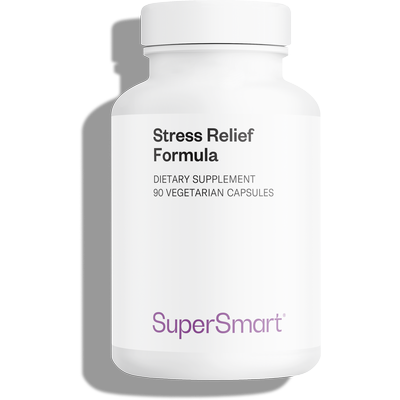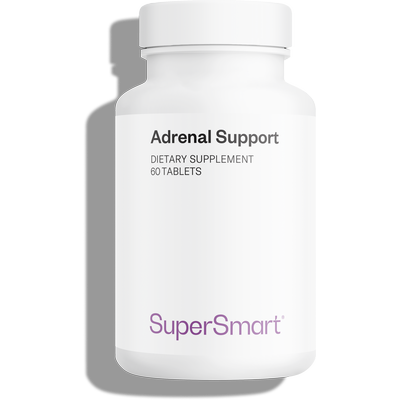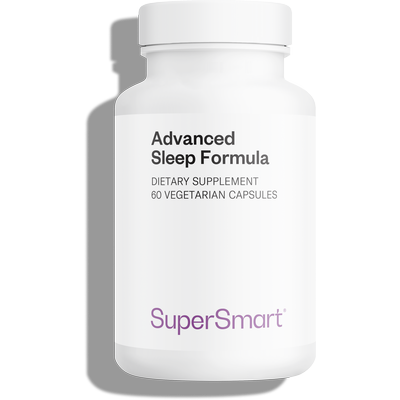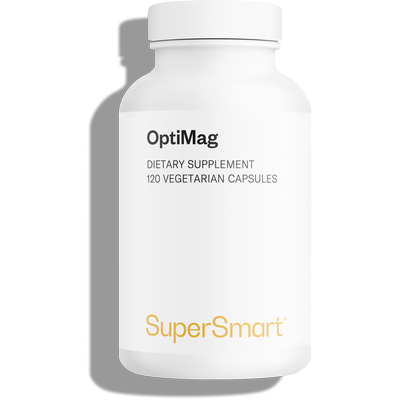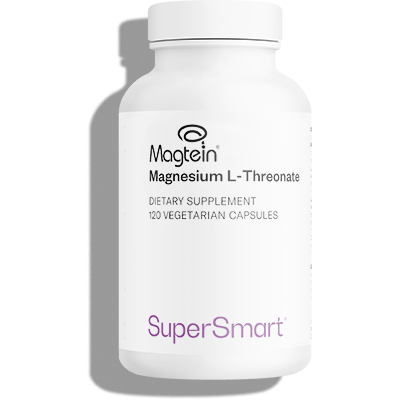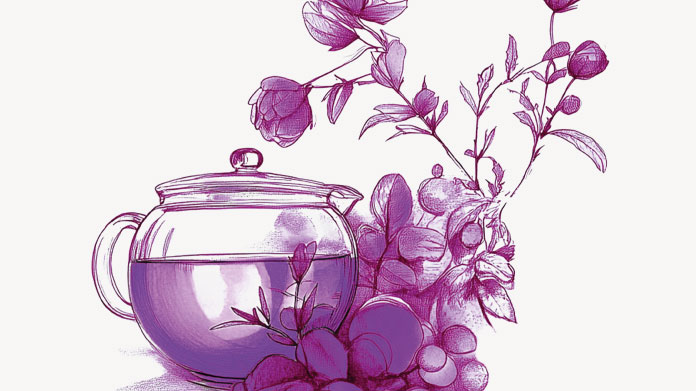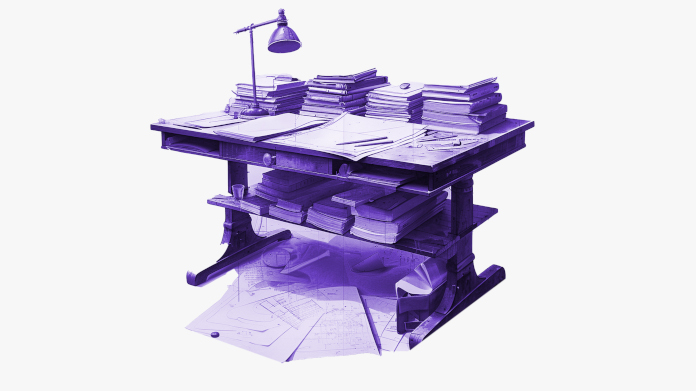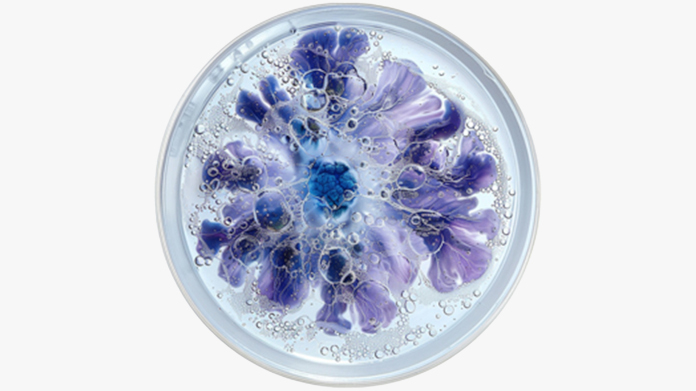8 natural ways to calm an anxiety attack
Your heart’s racing, you have a lump in the throat, and a feeling of dread: though harmless, an anxiety attack is still highly distressing. Here are 8 natural ways to ease these unwelcome episodes.

What exactly is an anxiety attack?
An anxiety or panic attack is an acute manifestation of unease. Often occurring without warning, it produces a range of physical and psychological symptoms: nausea, increased heart rate, shaking, feeling out of control, collapse…
It reaches a peak in around ten minutes before dissipating. Though such attacks primarily affect anxious individuals, the cause is not always identified.
For many of those affected, an anxiety attack is a traumatic ordeal: the mere prospect of repeating the experience creates apprehension which only perpetuates the problem (1).
Cardiac coherence to calm anxiety attacks
The autonomic part of our brain is made up of two antagonistic pathways: the sympathetic and parasympathetic systems. The first prepares us for the ‘fight or flight’ response, while the second activates the ‘rest and digest’ response. These two pathways normally act in harmony.
During an anxiety attack, the sympathetic aspect predominates. ‘Cardiac coherence’ is a simple breathing exercise which corrects this imbalance by slowing down the respiratory and heart rates (2-3).
How is it done? Inhale deeply for 5 seconds, then breathe out slowly for 5 seconds. Continue for several minutes until your heart and brain return to normal.
To maintain a state of calm on a daily basis, some people practise the ‘365’ technique: 3 times a day, they repeat this breathing cycle 6 times per minute for 5 minutes.
Mindfulness to ‘short-circuit’ anxiety
During a panic attack, your thought flow is disrupted. Mindfulness re-focuses your attention on your immediate environment, thus deflecting your anxiety (4).
If you feel a panic attack coming on, try this >5-4-3-2-1 exercise to head it off. Look around you for:
- 5 objects you can see;
- 4 sounds you can hear;
- 3 textures you can feel;
- 2 scents you can smell;
- 1 thing you can taste.
Passiflora to reduce agitation
Passion flower or passiflora (Passiflora incarnata) is a woody plant from central America.
Highly-prized by the Algonquin tribe, it helps induce a state of calm by reducing psychomotor agitation (the feeling of anxious restlessness). It also helps increase the body’s resistance to stress (5). To benefit from its properties, take a supplement based on passiflora extract (such as Stress Relief Formula).
If you have disturbed nights as a result of anxiety, passiflora can also help you get a good night’s sleep(6). It is often combined with other synergistic plant extracts (such as in the supplement Advanced Sleep Formula which contains hawthorn and valerian, a plant that promotes good mental health and helps fight insomnia).
Self-hypnosis for calming the mind
Self-hypnosis involves picturing yourself in a peaceful place. Imagine a tranquil environment where you feel at ease. List all the pleasant sensations you feel: the scent of the flowers, the sound of the breeze ...
This technique becomes more effective with practice and seems to have a positive effect on managing stress (7).
Acupressure to rapidly restore calm
Originating in Asia over 5000 years ago, acupressure stimulates specific areas of the body by pressing on key trigger points in order to restore physical and mental well-being (8).
If you feel overwhelmed with anxiety, perform acupressure on point L14: pinch the flesh between your thumb and index finger for 10 minutes, while breathing calmly.
Tulsi to combat stress
When anxiety attacks persist over a long period, the body is put under considerable strain. This can lead to intense fatigue and reduced resistance to stress, perpetuating a vicious circle.
Variously known as the ‘queen of plants’, ‘matchless’ and ‘the mother medicine of nature’, tulsi is a key element of Ayurvedic medicine. This Indian ‘holy basil’ helps to counteract stress and encourage vitality (9).
To benefit from its properties, take a supplement containing this invaluable medicinal plant (such as Adrenal Support).
Jacobson's Relaxation Technique for relaxing the muscles
In 1928, convinced that emotional control and muscle tension were intrinsically related, American psychiatrist Edmund Jacobson devised a body relaxation method aimed at restoring a state of mental calm.
Jacobson’s Relaxation Technique consists of alternating between contracting and relaxing your muscles in order to gradually rid yourself of tension(10-11).
Lie on your back, legs uncrossed, with your arms by the side of your body. Squeeze your fists for 5 seconds, then relax. Do the same with your biceps, forehead, glutes, hamstrings, calf muscles and feet. Continue the exercise by rounding your back, and then pulling your shoulders back.
Magnesium for normal nervous system function
When stress levels remain high for a long period, the body’s magnesium reserves become depleted. But this is an important mineral which plays a key role in ensuring normal nervous system and psychological function (12).
To ensure a good dietary intake, eat plenty of almonds, bananas, cocoa and wholegrain rice. To boost your levels, you can also take a course of magnesium supplements (such as Optimag or Magnesium Threonate, a state-of-the-art magnesium supplement).
SUPERSMART ADVICE
References
- Cackovic C, Nazir S, Marwaha R. Panic Disorder. [Updated 2020 Nov 29]. In: StatPearls [Internet]. Treasure Island (FL): StatPearls Publishing; 2021 Jan-. Available from: https://www.ncbi.nlm.nih.gov/books/NBK430973/
- McCraty R, Zayas MA. Cardiac coherence, self-regulation, autonomic stability, and psychosocial well-being. Front Psychol. 2014;5:1090. Published 2014 Sep 29. doi:10.3389/fpsyg.2014.01090
- Ginsberg JP, Berry ME, Powell DA. Cardiac coherence and posttraumatic stress disorder in combat veterans. Altern Ther Health Med. 2010 Jul-Aug;16(4):52-60. Erratum in: Altern Ther Health Med. 2010 Sep-Oct;16(5):11. PMID: 20653296.
- Keng SL, Smoski MJ, Robins CJ. Effects of mindfulness on psychological health: a review of empirical studies. Clin Psychol Rev. 2011;31(6):1041-1056. doi:10.1016/j.cpr.2011.04.006
- Janda K, Wojtkowska K, Jakubczyk K, Antoniewicz J, Skonieczna-Żydecka K. Passiflora incarnata in Neuropsychiatric Disorders-A Systematic Review. Nutrients. 2020;12(12):3894. Published 2020 Dec 19. doi:10.3390/nu12123894
- Guerrero FA, Medina GM. Effect of a medicinal plant (Passiflora incarnata L) on Sleep Sci. 2017;10(3):96-100. doi:10.5935/1984-0063.20170018
- Whitehouse WG, Dinges DF, Orne EC, Keller SE, Bates BL, Bauer NK, Morahan P, Haupt BA, Carlin MM, Bloom PB, Zaugg L, Orne MT. Psychosocial and immune effects of self-hypnosis training for stress management throughout the first semester of medical school. Psychosom Med. 1996 May-Jun;58(3):249-63. doi: 10.1097/00006842-199605000-00009. PMID: 8771625.
- Hmwe NTT, Browne G, Mollart L, Allanson V, Chan SW. An integrative review of acupressure interventions for older people: A focus on sleep quality, depression, anxiety, and agitation. Int J Geriatr Psychiatry. 2019 Mar;34(3):381-396. doi: 10.1002/gps.5031. Epub 2018 Dec 10. PMID: 30430640.
- Jamshidi N, Cohen MM. The Clinical Efficacy and Safety of Tulsi in Humans: A Systematic Review of the Literature. Evid Based Complement Alternat Med. 2017;2017:9217567. doi:10.1155/2017/9217567
- Manzoni GM, Pagnini F, Castelnuovo G, Molinari E. Relaxation training for anxiety: a ten-years systematic review with meta-analysis. BMC Psychiatry. 2008;8:41. Published 2008 Jun 2. doi:10.1186/1471-244X-8-41
- Ramasamy S, Panneerselvam S, Govindharaj P, Kumar A, Nayak R. Progressive muscle relaxation technique on anxiety and depression among persons affected by leprosy. J Exerc Rehabil. 2018;14(3):375-381. Published 2018 Jun 30. doi:10.12965/jer.1836158.079
- Pickering G, Mazur A, Trousselard M, et al. Magnesium Status and Stress: The Vicious Circle Concept Revisited. Nutrients. 2020;12(12):3672. Published 2020 Nov 28. doi:10.3390/nu12123672
Keywords
71 Days
Fiables y Recomendables
Como siempre estáis siempre ofreciendo alternativas naturales a los diversos problemas de Salud con un buen despliegue de información y una variada gama de productos. Y os felicito por el servicio de entrega que hacéis ahora que supera con creces el de antes.
Mariano Navarro Sanchez
71 Days
produits innovants
produits innovants, avec une composition claire
véronique de sainte marie
72 Days
Ravie et Très Satisfaite de Ma Commande…
Ravie et Très Satisfaite de Ma Commande et de Mes Commandes Très Bons Produits
Brigitte D.
72 Days
Produits fiables
Produits fiables
jacqueline
72 Days
Tout est OK 👌
Tout est OK 👌
RICHARD Bertrand
72 Days
Bestelle das Produkt seit Jahren immer…
Bestelle das Produkt seit Jahren immer wieder ist echt super, Preis Leistung ist ok könnte noch ein bisschen billiger sein aber sonst ok
SONJA Hofbauer
72 Days
Commentaire
Excellent services
DIDDY Mohamed
72 Days
Livraison rapide
Livraison rapide
devouass
72 Days
Schnelle Lieferung
Schnelle Lieferung. Gute Begleitung der Lieferung
SCHARWAECHTER Hans Juergen
73 Days
Efficace rapidement
J’ai commencé à prendre les facteurs de croissance osseuse alors que j’étais en plein accès douloureux d’ostéoporose. Mon état s’est stabilisé en quelques jours puis les douleurs ont diminué régulièrement. Je pense continuer ce remède pendant quelques mois puis 1 gélule par jour et une pause etc..
Françoise Delfour
73 Days
Rapidité de livraison avec prestataire…
Rapidité de livraison avec prestataire fiable ! Toujours impeccable.
Virginie
73 Days
Siempre buenas experiencias y cada vez…
Siempre buenas experiencias y cada vez más rápidos los envíos
Elsje Fokkelman
73 Days
Livraison rapide et en parfait état
Livraison rapide et en parfait état. Jamais d'erreur.
WUILLEMIN Sylvie
73 Days
J'ai trouvé rapidement sur le site le…
J'ai trouvé rapidement sur le site le complément qui m'était nécessaire et la livraison a été très rapide. Merci.
Client
73 Days
Je recommande ces produits
Facilité pour passer les commandes. Délais de livraison tenus. Produits de qualité. Je suis cliente depuis longtemps et très satisfaite.
Alexandre PUBERT

